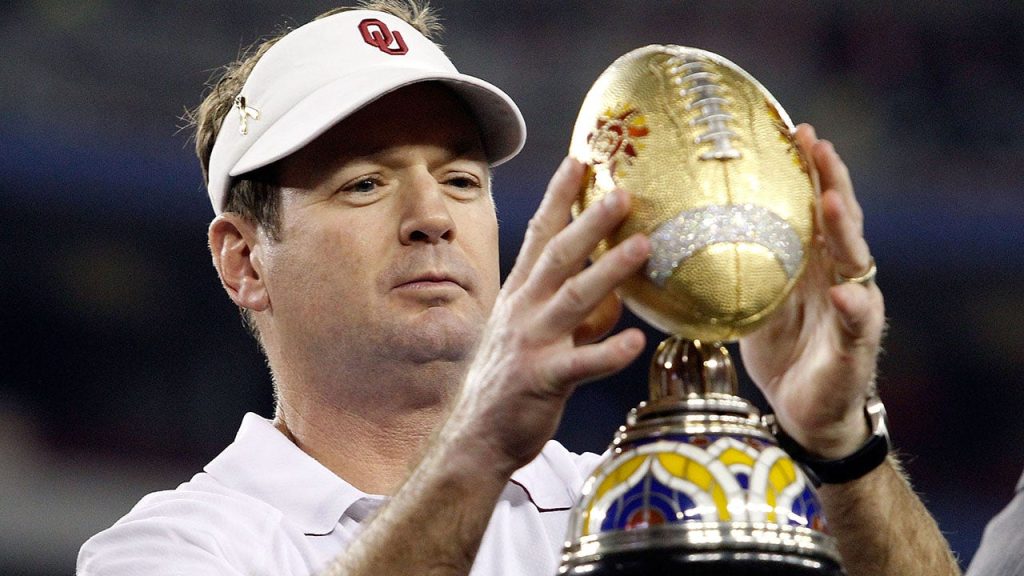Bob Stoops, a former college football head coach who led the University of Oklahoma to a national championship, is now heading the United Football League’s Arlington Renegades. Stoops recently spoke out about the need for a commissioner to lead the sport of college football. He expressed concerns about the current model, which he believes is unsustainable for coaches. Stoops mentioned the need for salary caps, contracts, and governance by a commissioner in order to address the issues facing college football today.
Former Alabama Crimson Tide head coach Nick Saban also weighed in on the turmoil in college sports. He highlighted the impact of the NIL era on his decision to retire, stating that the focus on financial compensation rather than player development was a major concern. Saban emphasized that his commitment to developing players and helping them succeed in life has been overshadowed by the current chaos in college athletics. His wife even questioned the purpose of recruiting events, as players seemed more interested in salaries than personal and professional growth.
Deion Sanders, a former NFL player and current head coach at Jackson State University, shared similar sentiments about the changing landscape of college football. He suggested that the focus on financial incentives and self-interest has overshadowed the traditional values of the sport. Sanders expressed concerns about the impact of these changes on young athletes and the overall integrity of college athletics. The sentiment that the current collegiate model no longer aligns with the values of player development and mentorship was echoed by multiple coaches and analysts in the sports industry.
The need for a commissioner to oversee and regulate college football has become increasingly apparent in light of these concerns. Many believe that a centralized governing authority is necessary to establish guidelines, salary caps, and enforce contracts in order to maintain fairness and integrity in the sport. The call for a commissioner comes as college football grapples with the evolving landscape of athlete compensation, endorsements, and recruitment. Coaches and administrators alike are recognizing the need for a comprehensive approach to address the challenges facing college football in the modern era.
As college sports continue to navigate the complexities of the NIL era and the shifting priorities of student-athletes, the role of a commissioner in overseeing the sport becomes more critical. The emphasis on player development, mentorship, and character-building has taken a backseat to financial incentives and individual success. Coaches like Bob Stoops and Nick Saban have expressed their concerns about the detrimental impact of these changes on the values and traditions of college athletics. The push for a commissioner to lead college football reflects a growing recognition of the need for comprehensive reform to ensure the long-term sustainability and integrity of the sport.
In conclusion, the voices of prominent coaches and figures in the sports industry highlight the urgent need for a commissioner to lead college football. The current model, which prioritizes financial gain over player development and mentorship, is unsustainable and threatens the integrity of the sport. Coaches like Bob Stoops, Nick Saban, and Deion Sanders have raised alarms about the direction of college athletics and the need for a centralized governing authority to address the challenges facing the sport. As college football continues to evolve in the NIL era, the role of a commissioner becomes increasingly crucial in establishing guidelines, promoting fairness, and upholding the values that have traditionally defined the sport.


